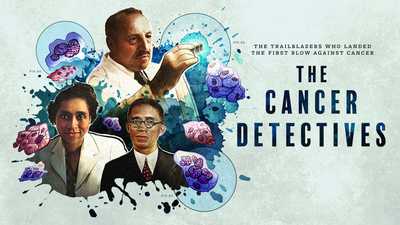Kids in the Civil War

Ulysses S Grant was the biggest hero of the Civil War. Johnny Clem might well have been the smallest. Ten years old when he ran away from home and joined the second Michigan Regiment, the drummer boy won fame at the battle of Shiloh, where he put down his drum, picked up a gun, and shot a Confederate colonel. All across the Union, Clem was celebrated as a hero. But Johnny Clem wasn't the only young person to be affected by the Civil War. In fact, it would be hard to find a kid that wasn't.
When war broke out in 1861, kids across the North and the South said goodbye to their fathers, brothers, uncles, and cousins -- or joined the military themselves. As many as 20% of Civil War soldiers were younger than 18. That was the minimum recruiting age for Union soldiers, but many people willingly overlooked the law. The Confederacy set no minimum age. Many young soldiers enlisted as musicians -- drummers, fifers, or buglers. In theory, musicians didn't fight. But once a battle began, these kids often armed themselves — to save their own lives or the lives of their friends.
It's hard to imagine the horrors teenage soldiers experienced. They charged through hailstorms of bullets while the bodies of their friends fell all around them. They listened as wounded men pleaded for their mothers, for a drink of water, or for death to come. They assisted surgeons, standing by as they sawed off mangled arms and legs — often without an anesthetic. They endured the horrors of Andersonville, a Confederate prison in which thousands of Union men died of starvation and disease. They were killed in battle or suffered physical and mental wounds that they would carry for the rest of their lives.
If the greatest horrors of the war occurred on the battlefields, civilians experienced their own shares of hardship. Families whose men went to war made up for their absence. Kids helped run family farms and businesses. They planted and harvested crops, chopped wood, and butchered animals for food. They drove horses, cooked, and cared for siblings. They wrote letters to their absent relatives, and prayed for them to come home safe. Many never did.
In the South, where most of the war's major battles were fought, civilian children endured even more misery. They huddled underground as bullets pierced the walls of their homes and artillery burst all around them. They stood by as their homes were turned into command posts or field hospitals. They tended wounded soldiers and watched them die. When the battles ended their homes and farms were often in ruins. Their fields and even their yards were littered with rotting corpses. Their animals and their food crops were destroyed or taken by soldiers. They faced disease and even starvation.
Yet for some Southern children — African American slaves — this brutal war meant freedom. Even before the war, enslaved children had escaped to the North with their families and on their own. As soon as the war began, African Americans began to slip behind Union lines and seek refuge. After President Lincoln issued the Emancipation Proclamation, this stream of refugees turned into a flood.
Often, home for emancipated slaves was no more than a wooden packing crate in a primitive encampment. Food was scarce, and disease rampant. As many as half of all blacks in such encampments died of diseases such as malaria and typhoid. But still, there was hope. Sympathetic Northerners set up schools to teach blacks of all ages to read and write. And like young Northern whites, young African Americans joined the army and fought for the Union cause. They, too, experienced the horrors of war, at places such as Fort Wagner, South Carolina, and Saltville and Petersburg, both in Virginia.
Still, through all of the madness of war, children remained children. In schoolyards and farmyards, boys dressed as soldiers marched and played war. Girls imitated the nurses of the U.S. Sanitary Commission, which provided medical care to the soldiers. Kids read magazines such as Our Young Folks that contained stories of soldiers like Johnny Clem and encouraged kids to sacrifice for the war effort. And sacrifice they did, sending food packages, bandages, and clothing to soldiers in the field.
When the war ended in 1865, children felt both joy and sadness. Many soldiers returned home safe, but some came home wounded. Others didn't make it home at all. Almost every child in America had lost a relative in the war. While Northern children celebrated victory, young Southerners shared the humiliation of defeat. Many young African Americans enjoyed freedom for the first time. But that freedom would be limited by racism.
No matter who they were or where they lived, young people across America were glad that the bloodiest war in American history had ended at last. But for most kids who survived, the war would never quite be over. It had forced them to endure hardships and to grow up fast enough to take on adult responsibilities. It had shown them just how horrible the world could be. And they would never forget it.






